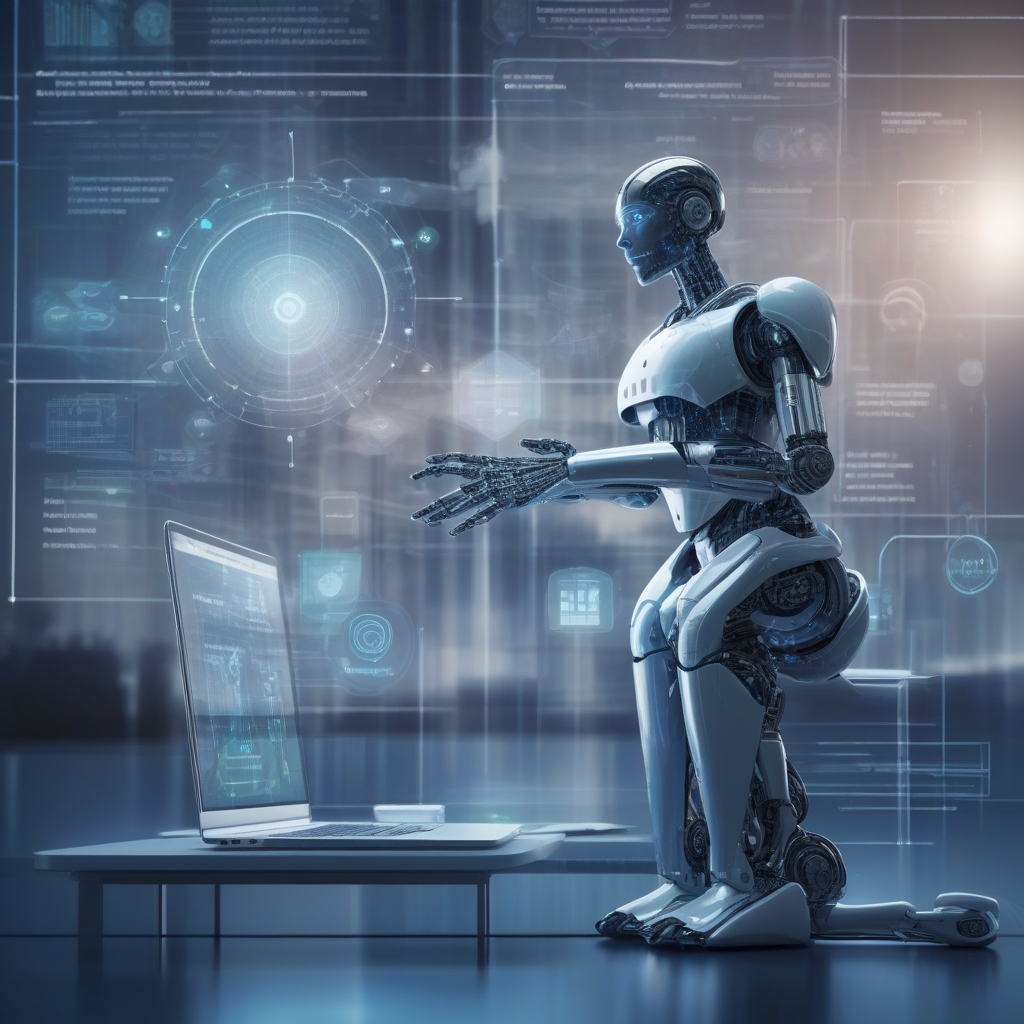**Exploring the Intersection of AI and Contract Law**
The digital age is transforming how legal processes are handled, and one of the most promising advancements comes from the integration of artificial intelligence (AI) in contract law. Smart contracts and automated decision-making are among the leading innovations, offering a glimpse into a future where legal processes are not only more efficient but also more transparent and less prone to human error.
Understanding Smart Contracts
Smart contracts are self-executing contracts with the terms directly written into code. Unlike traditional contracts, which require intermediaries to enforce the terms, smart contracts automate this process.
How Do Smart Contracts Work?
At their core, smart contracts rely on blockchain technology. This decentralized ledger ensures that once a contract’s conditions are met, the transaction is automatically executed without the need for manual intervention. Here’s how it works:
- Contract Creation: Parties agree to terms and conditions, which are coded into a blockchain.
- Condition Verification: The code automatically checks the fulfillment of conditions.
- Automatic Execution: Once conditions are met, the contract self-executes.
- Immutable Records: Every action is recorded on the blockchain, ensuring transparency and immutability.
Benefits of Smart Contracts in Law
Integrating smart contracts in law presents several advantages:
- Speed and Efficiency: Automated processes eliminate the need for intermediaries, speeding up transactions.
- Cost Reduction: Reduced need for legal intermediaries and paperwork decreases overall costs.
- Transparency: Blockchain’s immutable nature ensures transparent, tamper-proof records.
- Accuracy: Automated contract execution minimizes human errors and misinterpretations.
- Security: High-level cryptographic security protects contract data.
Challenges and Legal Implications
Despite their benefits, the implementation of smart contracts in legal frameworks is met with challenges:
Regulatory Hurdles
Smart contracts exist in a decentralized environment, making traditional regulatory oversight difficult. Questions arise regarding jurisdiction, enforceability, and the applicability of existing laws to blockchain-based transactions.
Legal Validation
For smart contracts to gain mainstream acceptance, they must be recognized and enforceable in courts of law. Legal systems globally face the challenge of updating current contract laws to accommodate this new technology.
Technological Complexity
Deploying smart contracts requires a robust technical understanding. Errors in code can lead to significant financial losses, as demonstrated by incidents in the cryptocurrency world.
Automated Decision-Making in Legal Processes
Apart from smart contracts, AI is transforming other aspects of contract law through automated decision-making systems. These systems leverage machine learning algorithms to assist in various legal tasks:
Contract Analysis
AI-driven tools can analyze vast amounts of legal documents, extracting relevant information and providing critical insights. Tasks such as identifying key contract terms, detecting inconsistencies, and ensuring compliance become more efficient.
Dispute Resolution
Automated decision-making can also play a role in dispute resolution. AI systems can review evidence, compare it with legal standards, and provide unbiased judgments or recommendations.
Risk Assessment
By analyzing historical data, AI tools can assess potential risks associated with contract terms, helping legal professionals make informed decisions.
The Future of AI in Contract Law
The convergence of AI and contract law is set to bring about a paradigm shift. As technology advances, we can expect:
- Wider Acceptance: Increased legal recognition and regulatory frameworks specifically designed for smart contracts.
- Improved Accuracy: Enhanced AI algorithms providing more precise legal insights and recommendations.
- Integration Across Sectors: Wider adoption of smart contracts in various industries, from real estate to healthcare.
- Continuous Innovation: Ongoing advancements in blockchain and AI, leading to new applications and improvements.
Conclusion
Incorporating AI and smart contracts into the realm of contract law offers numerous benefits, including efficiency, transparency, and cost savings. However, it also poses challenges that must be addressed through updated legal frameworks and technological expertise.
As we continue to explore and refine these technologies, the future of contract law looks promising. The impact of AI and smart contracts will likely extend beyond streamlining legal processes, potentially revolutionizing the way we think about and interact with the law itself.

Leave a Reply